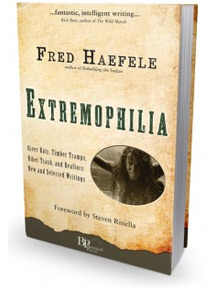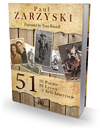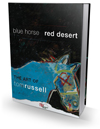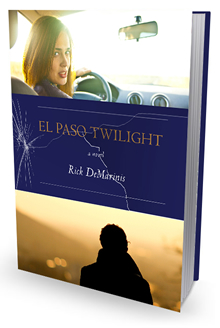
Illegal immigration and drug smuggling, corporate polluters and tragic affairs of the heart. On the border country between Mexico and the United States, literature can barely keep up with the bad news. An exception is the new novel from Rick DeMarinis, El Paso Twilight. A study of political manners and debauchery masquerading as pulp fiction, DeMarinis shows us a world inhabited by the likes of Luther Penrose, a 290-pound, drug-dependent novelist with marital fidelity problems, and Luther’s old army buddy, J. P. Morgan, an insurance fraud investigator who has reluctantly agreed to lend his friend a hand. Given the tumultuous, bloody, and unpredictable events that follow, it’s a decision that Morgan will come to ruefully regret. With wry humor and scalpel-sharp sensibilities, El Paso Twilight marks a splendid return to form from one of most applauded authors in the American West.
Book Information
Dimensions: 6 x 9
Price: $16.95 Paperback, $9.99 Ebook
Release Date: September 15, 2015
About Rick DeMarinis
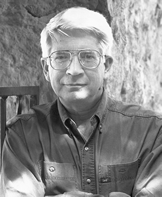 Rick DeMarinis was the highly acclaimed author of nine previous novels, including The Year of the Zinc Penny, a New York Times Notable book, and six short story collections, including Apocalypse Then and Borrowed Hearts. In 1990, he received a Literature Award from the American Academy of Arts and Letters. Each year, Cutthroat: A Journal of the Arts, awards a short story prize in his name. Rick passed away on June 12, 2019.
Rick DeMarinis was the highly acclaimed author of nine previous novels, including The Year of the Zinc Penny, a New York Times Notable book, and six short story collections, including Apocalypse Then and Borrowed Hearts. In 1990, he received a Literature Award from the American Academy of Arts and Letters. Each year, Cutthroat: A Journal of the Arts, awards a short story prize in his name. Rick passed away on June 12, 2019.
Praise for Rick DeMarinis
“Rick DeMarinis, who seems to have warmed his toes by the fires of James Crumley’s gonzo genius, is one of that lonesome crowd of writers who love the language but aren’t afraid to rough it up to save its life. Still…if civilization is headed for the caves, it’s nice to know that DeMarinis will be there, scribbling on the walls. ”
— Marilyn Stasio
The New York Times Book Review
“DeMarinis has produced a masterpiece in this bittersweet coming of age story.”
— Publishers Weekly
On The Year of the Zinc Penny
“Rick DeMarinis has long been one of my favorite writers; wherever he has cast his gaze, he has taught me something new about the way to see things.”
— Robert Olen Butler
“It’s one thing to be good, which, Lord knows, Rick DeMarinis certainly is. Funny, however, is not a given. And The Mortician’s Apprentice is the funniest book I have read in some time.”
— Beverly Lowry
“DeMarinis is a contemporary avatar in American short story writing that, by way of Melville, Faulkner, Welty, and Cheever, is essentially religious, and, because rooted in the everyday, comic. His art…is comedy of a very high order.”
— Russell Banks
The New York Times Book Review
“You simply can’t move your eyes from the page.”
— Mark Smirnoff
The New York Times Book Review
“I have always believed that Rick DeMarinis is one of the most talented and versatile writers of my generation…Mama’s Boy is one of the best novels I’ve read in years.”— James Lee Burke
Excerpt
El Paso is isolated from mainstream America by hundreds of miles of desert on all sides. The isolation isn’t just a matter of distance. Established in the 1500s, this city has always marched to its own drummer. It’s a piece of America that held to its own, less-frenetic pace. Think of it as American civilization in retrograde. The town looks modern enough—freeways, the usual glass and steel buildings, the usual shopping malls, the usual briefcase-carrying men in thousand-dollar suits giving the impression of vitality and purpose—but deep within its poetic heart it nurtures a secret desire to apply the brakes to the machinery of enterprise. It’s a poor town—the unemployment rate a perpetual ten percent, twice the national average—but the ambitionless feel comfortable here. My father went against the grain, and it killed him.
Kat was from Chicago and couldn’t understand the El Paso zeitgeist. It’s not something to understand, it’s something to experience. I had no explanation other than to say, “It’s my town, it’s how we are, I can’t be anything else.”
“This town is crazy,” Kat once said. “On the surface it’s mellow and easy going, but that’s a thin veneer. It’s nothing more than articulated chaos.”
I had think about that. “That describes most of the world, doesn’t it?” I answered.
Who you are is where you’re from and what happened to you there. The city, the desert, the river, the tawny Franklin mountains that divide the town into two halves—these things define you, starting from the cradle, ending in the grave. You carry out your life to the strains of mariachi guitars carried on the breeze. If I said I loved the place, I’d be misstating the facts. I am the place: Articulated chaos. Me.
